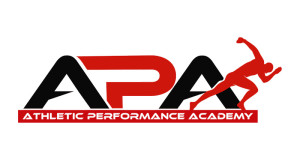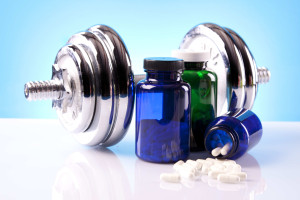Supplements for Athletes, Getting it Right!
This week’s post comes from APA coach Fabrizio Gargiulo, who gives us an absolutely excellent review of the latest advice on supplement use in sport.
The sports supplement industry is worth millions of pounds globally with a seemingly endless amount of products being offered to help boost performance in the gym and on the field of play. There are many claims to make you stronger, faster and be able to go for longer however it is important to know which ones really will improve your performance, which might and which just hold a false claim to fame. As an athlete however it is also vitally important to know which supplements you can legally take and do not contain banned substances.
Firstly as the name suggests, supplements are designed to compliment or ‘supplement’ if you will a good healthy, nutritious diet that works for you individually, this includes; meats, fish, eggs, fruit, vegetables, other starchy carbohydrates and simple sugars, good fats and of course plenty of water. Supplements are not designed to replace your meals and should not be used as such, however the modern athlete is always looking for an edge in performance or recovery from training, this is where supplements can have a role and they can also be of benefit to the health of athlete, helping to prevent fatigue, reduce stress and possible illness.
In this section I shall address the basic issues of improving sporting performance and list some suitable supplements you may wish to try to facilitate any improvement. The basic package of supplements I would initially recommend include; a pre-workout stimulant, a post-workout recovery supplement containing both carbohydrates and protein and finally both fish oils and a multi-vitamin for longer term recovery. Let me also state that you most definitely can obtain all of the nutrients needed through eating foods, it is however, likely to cost more, result in a large quantity of food needing to be eaten and it can be difficult to get the quality of the products easily.
Pre-workout supplements:
As an athlete it is important to look upon this category differently to that of the gym bound body builder looking to create a great ‘pump’. The pre-workout should aim to provide the necessary fuel and micronutrients needed during the exercise, provided the exercise is of an intensity that will create a stressful environment for the body. This could be anything from a heavy weight training session in the gym to an 8-hour cycle or time trial swim. Different activities will require different types of supplementation and not all athletes will respond to, or like taking on supplements pre-exercise. Here are some examples of suitable pre-workout supplements that can be used for different training or competing sessions:
Caffeine: – acts as a stimulant for high intensity exercise lasting up to 90 minutes, dosage should be 3-6mg/kg – this is very important to remember as overdosing caffeine can be dangerous to your health, an 80kg male should therefore take 240-480mg per day which equates to 0.24-0.48g/day of caffeine or approximately 1 double espresso prior to training and 1-2 cups of tea or coffee during the day. Timing is also important; 30-45mins prior to the start of exercise is ideal.
Creatine: – an amino acid derivative synthesised from arginine, glycine and methionine, many studies have shown increased muscular size, strength and power as well as reduced muscle protein breakdown during exercise. Creatine can either be taken as a loading phase of 20g for 5 days followed by 0.3g/kg per day for up to 8 weeks or more recent research suggests that simply taking 3-5g/day is sufficient to fill creatine stores within the body over the same period. Combining creatine with carbohydrate or protein simultaneously will also aid in absorption.
Citrulline Malate: primarily used to produce energy and build muscle mass by increasing growth hormone secretion and nitric oxide production. This creates the ‘pump’ associated with arginine and nitric oxide supplementation but is useful for gaining extra energy and preventing fatigue by removing ammonia and increasing the reabsorbtion of lactate for increased ATP synthesis when in strength training sessions. Dosage is 3-6g/day, ideally taken 30-45 mins before training.
Beta-alanine: functions to synthesise carnosine, which is used as a pH buffer, helping to prevent fatigue. Carnosine also acts as an antioxidant, protecting the muscle proteins from oxidation and glycation from free radicals as well as increasing cellular sensitivity to calcium. Dosage is 3-6g/day, ideally taken 30-45 mins before training.
Although you may wish to take each of these supplements individually or make a home-made blend, thankfully there are several pre-workout options available on the market, the key being to choose one that is free from any banned substances and combines an appropriate dosage of each of the above.
Post-workout recovery supplements:
The key to post-exercise recovery is to replace what has been used during the training session. This should include the water and electrolytes lost through sweating, restoring glycogen stores in the liver and muscles through simple carbohydrates and providing a protein source to help rebuild the muscle cells damaged by exercise. Here are some examples of supplements that can be used post-exercise to assist in recovery.
Whey Protein:
Protein is used as the building blocks for repair and growth of the body, athletes will need protein to provide the muscles with the amino acids they need to recover from exercise. Dietary recommendations vary between 0.8-2.0g/kg of protein per day however during the post-exercise ‘window of recovery’ – the first 2 hours – you should aim to consume 20-40g in combination with carbohydrates and electrolytes. Protein yields 4Kcals/g there are however several different molecular structures dependent upon the size of the amino acid chain. During the initial phase of recovery, the first 30 minutes, the body is better suited to taking on smaller amino acid complex or proteins that have already undergone a form of hydrolysis such as whey isolate a more complex molecular structure will take a lot longer to release this energy, therefore not making the most efficient recovery for muscle protein resynthesis.
Carbohydrates:
Needed to restore depleted glycogen stores in the liver and muscle cells, carbohydrate is often lesser thought of as a supplement and not prioritised ahead of protein in many strength training athletes, it is however vital to restoring energy and hormonal balance which assists in protein synthesis, so should be prioritised during the initial phase of recovery. Carbohydrates exist either as mono-saccharides, di-saccharides or poly-saccharides dependent on the number of saccharide molecules (1,2 or many). They are often termed as either simple or complex carbohydrates determined by the glycemic index (GI) they possess, a higher GI value equates to a faster release of energy and this is useful when you want to replenish stores quickly. Common examples used in supplements include, dextrose, maltodextrin and sucrose all with high GI values, whereby fructose is also often used as it has a lower GI value and is absorbed via a different pathway in the gastrointestinal tract. Fructose however is not considered a useful source of energy for the strength training athlete as it impairs insulin function and sensitivity, causing an increase in triglycerides and adipose fat stores and its place in the daily diet has been discouraged as it exists as sugar, corn-syrup, fruit juices and candies.
The ratio of carbohydrate to protein needed post-exercise is dependent upon the type of exercise; endurance training typically would require a ratio close to 4:1(g) in favour of carbohydrates, whereas strength training would be closer to 2:1(g). Either way carbohydrate is necessary post-exercise and in combination with protein shows greater absorption and subsequent protein synthesis.
Addition of electrolytes is also an important consideration, sodium, potassium, zinc and magnesium are all micro-nutrients that should look to be restored. Often ready to drink supplements will contain ample amounts of these and can be a simple and effective way to contribute to fluid rehydration and balance.
Health supplements:
Fish Oils:
There are several types available but the key to choosing the right one is to look at the label. It should be of pharmaceutical grade and definitely meet international standards for heavy metals, PCBs and be free from contaminants. Fish oils provide a great source of omega-3, a fatty acid that helps act against the inflammatory processes in the body, is abundant in EPA and DHA (these produce prostaglandins and leukotrienes to protect the body) and helps prevent cardiac disease and osteoarthritis in the joints. Often in a western European diet there is an imbalance between omega-6 and omega-3 often with high ratios in favour of omega-6, as much as 20:1 has been reported with an ideal ratio being as close to 1:1 as possible. Omega-6 acts as a pro-inflammatory and although it is useful to the body high quantities above omega-3 levels do not assist the body in recovery from exercise, stress or in fat loss. When a better ratio (1:1) is achieved you will see improvements in all 3 of those areas. A high fish diet could be used, however the fish needs to be a good oily source such as salmon or mackerel and come from an organic source, both of which are expensive and undesirable.
Multi-vitamin:
I believe in fruit and vegetables as the best source of these dietary components, however obtaining these at the quality needed to ensure good levels of micronutrients is proving more and more expensive – basically you need to be buying organic, free range and clean of any pesticides to hope that the fruit or vegetable has adequate nutrients and even then you are not guaranteed because of any number of climate or environmental factors. So to make sure you are achieving optimal levels for health – to stave of disease, reduce stress and improve performance – mental, physical and even sexual, why not add a multi-vitamin. Again ensure it is a high quality product and meets all the international standards needed. Make sure you still are eating plenty of fruits and vegetables from clean sources if you can and use the supplement to top up the levels of micronutrients.
There are many other products available, however when making changes to dietary inventory and being a competing athlete it is important to trial any new regimes out of competition time and in a period of relatively low training stress to enable adaptation. Often small changes can make big differences especially when you are already a high level competing athlete, so don’t try everything new at once.
Fabrizio Gargiulo


